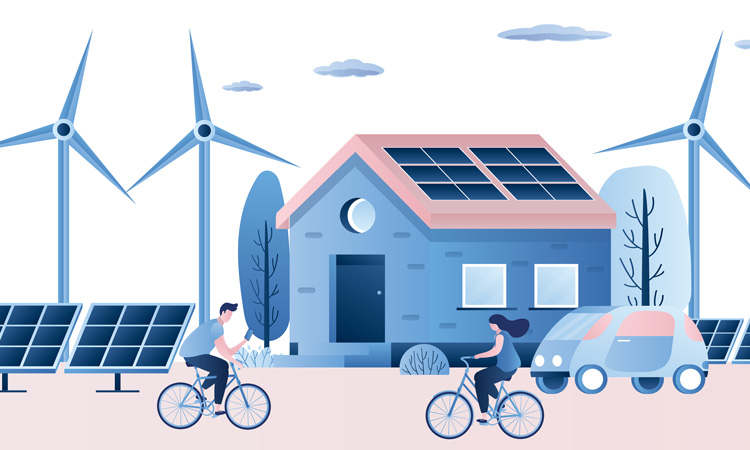Commission and EIB propose public loan facility to support green transport investments
- Like
- Digg
- Del
- Tumblr
- VKontakte
- Buffer
- Love This
- Odnoklassniki
- Meneame
- Blogger
- Amazon
- Yahoo Mail
- Gmail
- AOL
- Newsvine
- HackerNews
- Evernote
- MySpace
- Mail.ru
- Viadeo
- Line
- Comments
- Yummly
- SMS
- Viber
- Telegram
- Subscribe
- Skype
- Facebook Messenger
- Kakao
- LiveJournal
- Yammer
- Edgar
- Fintel
- Mix
- Instapaper
- Copy Link
Posted: 28 May 2020 | Sam Mehmet (Intelligent Transport)
In a bid to encourage the transition towards a climate-neutral economy, the European Commission and EIB have presented a proposal for a public sector loan facility for green investments, such as those related to public transport.


The European Commission has presented its proposal for a public sector loan facility under the Just Transition Mechanism, a tool which is expected to mobilise at least €150 billion of investments in the EU economy over the period 2021 – 2027. The public sector loan facility will be implemented with the involvement of the European Investment Bank (EIB) and will encourage investments that support the transition towards a climate-neutral economy by public sector authorities.
The facility will include €1.5 billion in grants from the EU budget and up to €10 billion in loans from EIB’s own sources. The facility will mobilise up to between €25 and €30 billion of investments for helping territories and regions most affected by the transition to a climate-neutral economy, prioritising those that have less capacity to deal with the costs of the transition.
Investment areas will include energy and transport infrastructure, district heating networks, public transport, energy efficiency measures and social infrastructure, and other projects that can directly benefit the communities in the affected regions and reduce the socio-economic costs of the transition towards a climate-neutral Europe by 2050.
The proposal will be negotiated with the European Parliament and the Council in view of its rapid adoption. The first calls for projects are expected to be launched after the adoption and entry into force of the public loan facility, and the approval of the territorial just transition plans. Ahead of the first call, an administrative agreement will need to be signed with EIB in order to set out the implementation arrangements of the facility.
Executive Vice-President for an Economy that Works for People, Valdis Dombrovskis, said: “Today we are making good on our promise to provide financial support to less advantaged regions to help them to transition to a more climate-neutral economy. This loan facility will focus on boosting public investments that can contribute to the green transition in parts of Europe that are more carbon-intensive and grappling with greater socio-economic challenges – investments that would otherwise not happen. I call on member states and the European Parliament to endorse this proposal, as well as the Just Transition Fund, as part of our efforts to ensure we make the European economy greener and more resilient.”
Commissioner for Cohesion and Reforms, Elisa Ferreira, added: “While we are focused on steering us through the crisis provoked by the coronavirus pandemic, we must not forget the damage that climate change is inflicting on our planet. As President von der Leyen also said, there is no vaccine against climate change. But we need to make sure the transition towards a climate-neutral economy happens in a fair way. Today’s proposal is an essential tool in ensuring this fairness, complementing the efforts of Cohesion policy in supporting regions and citizens most vulnerable to adjustments towards a climate-neutral Union.”
Vice-President of the European Investment Bank, Lilyana Pavlova, said: “While confronting the great socio-economic challenge posed by COVID-19, we should not forget the long-term fundamental threat of climate change. As the EU climate bank, the European Investment Bank pledged to dedicate at least 50 per cent of its lending to climate action and environmental sustainability by 2025 and to align all its financing with the goals of the Paris Agreement by the end of the year. The proposed Just Transition Mechanism, which the EIB plans to support with its financing, will be key to ensuring that transforming our economies to carbon neutrality will happen with shared benefits and no disproportionate costs among regions.
“It is the reflection of European solidarity and in line with the aims of Cohesion Policy to help each region achieve its full potential, to bring about a convergence of living standards and prosperity across the European Union.”
Related topics
Air Quality, Alternative Power, Business Models, Public Transport, Sustainable Urban Transport
Related cities
Europe
Related organisations
European Commission (EC), European Investment Bank (EIB)
Related people
Elisa Ferreira, Lilyana Pavlova, Ursula von der Leyen, Valdis Dombrovskis








